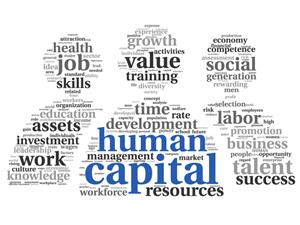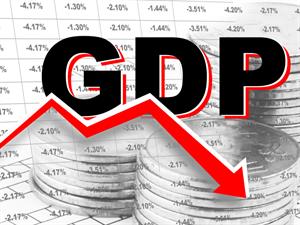PDF chapter test TRY NOW
Socio-Economic development
The concept of Socio-Economic development is essential for an empowered society. This development is an outcome of the proper standard of living of the people, adequate social capital, skill development etc.
It is also seen as the development of society and economy based on cultural and environmental factors. The Socio-Economic development of a society is measured through various factors as follows:
1. GDP – Gross Domestic Product
2. Literacy of the Population
3. Life Expectancy of the citizens
4. Employment and Purchasing power The Yardsticks of Socio-Economic development:
The Indian government uses certain parameters to measure socio-economic development, as discussed below.
1. Gross Domestic Product (GDP):
GDP: It is defined as the “monetary value of all final goods and services produced in the country” within one year.

Gross Domestic Product
The Gross Domestic Product is seen as an important indicator of development in the country as it paints the true picture of the economic position of India.
It measures the economic activity of the country for a defined period which indicates the changes in prices, production activity, imports and exports etc.
In 2015 the Government of India changed its base year to 2011-2012 from the previous base year 2004-2005
The accurate picture given by the GDP enables the government to steady its spending mechanism that in turn ameliorates the economy.
2. Life Expectancy:
The indicator of life expectancy indicates the wellness of the citizens that is the “longevity of the person according to their condition of living”. This parameter marks the demographic capital of the country.
The expectancy was below 30 years during the time of independence, and it rose to 66 years (national average) according to the 2011 census, the average life expectancy of men (65.8) and women (68.3).
The Indian government has been taking various measures and enacting legislation to address life expectancy problems.
Niti Aayog: The Institution of Niti Aayog (replaced planning commission) was established on \text{Jan 1, 2015}. Its main objective was to bolster economic growth through viable policies.
3. Literacy:
Education plays a vital role in shaping and developing the society of a country. Right from the times of Independence, our leaders had given considerable importance to educating people, which forms the “Human Capital” of the country.

Human Capital Concept
Our Constitution also guarantees basic education to children through provisions of “Article 21 A and Article 45”. The Government went a step further and enacted the “Right to Education” Act in 2009.
Human Capital: The term human capital means the skills, knowledge, competence and different attributes of individuals which are used to produce new ideas in society.
Various educational policies were also devised to include students from all sections of society. First National educational policy (1968), Second national educational policy (1986) and the latest one National Educational policy (2020).
4. Employment:
Post-independence, the Indian economy witnessed a huge shift from the Primary (Agriculture sector) to the Secondary and Tertiary sectors (Industrial and service sectors).
This shift enabled people to move from rural to urban areas, increasing the divide between people. The government had introduced many policies to boost economic development in rural areas to overcome these differences.
Smart City: The GOI launched the “Smart City Mission” in 2015 to promote infrastructure, sanitation and better environmental conditions to the citizens.
Industrial giants were given tax benefits and incentives to establish their industries in rural areas, which generated employment opportunities for rural people.
5. Drinking water and Sanitation:
Drinking water and Sanitation has been a pressing problem that strangulates the country right from its independence. The Government had charted various plans to ameliorate the problems by enacting numerous policies.
- Pradhan Mantri Ujjawala Yojana
- Health and Sanitation for all campaigns
Sanitation and Malnutrition are problems that have a severe impact on the economy.
